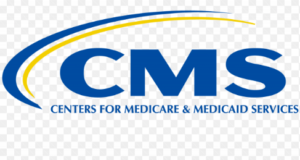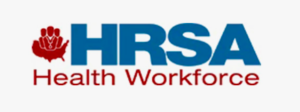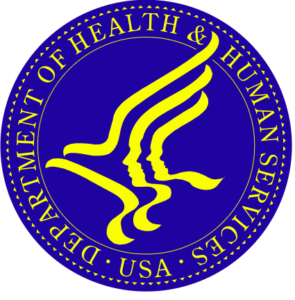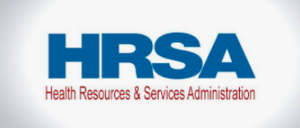- CMS: Medicare Program; Implementation of Prior Authorization for Select Services for the Wasteful and Inappropriate Services Reduction (WISeR) Model
- Public Inspection: CMS: Medicare Program: Implementation of Prior Authorization for Select Services for the Wasteful and Inappropriate Services Reduction Model
- CMS: Secretarial Comments on the CBE's (Battelle Memorial Institute) 2024 Activities: Report to Congress and the Secretary of the Department of Health and Human Services
- HHS: Patient Protection and Affordable Care Act: Marketplace Integrity and Affordability
- HRSA Announces Action to Lower Out-of-Pocket Costs for Life-Saving Medications at Health Centers Nationwide
- Public Inspection: HHS: Patient Protection and Affordable Care Act: Marketplace Integrity and Affordability
- Increased Risk of Cyber Threats Against Healthcare and Public Health Sector
- Eight Hospitals Selected for First Cohort of Rural Hospital Stabilization Program
- Announcing the 2030 Census Disclosure Avoidance Research Program
- CMS: Medicare Program; Hospital Inpatient Prospective Payment Systems for Acute Care Hospitals and the Long-Term Care Hospital Prospective Payment System and Policy Changes and Fiscal Year 2026 Rates; Requirements for Quality Programs; and Other Policy Changes; Correction
- CMS: Medicare Program; Hospital Inpatient Prospective Payment Systems for Acute Care Hospitals and the Long-Term Care Hospital Prospective Payment System and Policy Changes and Fiscal Year 2026 Rates; Requirements for Quality Programs; and Other Policy Changes; Correction
- CMS: Medicare and Medicaid Programs; Contract Year 2026 Policy and Technical Changes to the Medicare Advantage Program, Medicare Prescription Drug Benefit Program, Medicare Cost Plan Program, and Programs of All-Inclusive Care for the Elderly; Correction
- CMS: Medicare and Medicaid Programs; Contract Year 2026 Policy and Technical Changes to the Medicare Advantage Program, Medicare Prescription Drug Benefit Program, Medicare Cost Plan Program, and Programs of All-Inclusive Care for the Elderly; Correction
- CMS: Medicare Program; Prospective Payment System and Consolidated Billing for Skilled Nursing Facilities; Updates to the Quality Reporting Program for Federal Fiscal Year 2026
- CMS: Medicare Program; FY 2026 Hospice Wage Index and Payment Rate Update and Hospice Quality Reporting Program Requirements
Comments Requested on Information Collection for Hospital and CAH CoPs – October 7
 The Centers for Medicare & Medicaid Services (CMS) is announcing an opportunity for the public to comment on CMS’ intention to reinstate the information collection for the Hospital Conditions of Participation (CoPs) and Supporting Regulations (Office of Management and Budget control number 0938- 0328) that expired in 2017 and update the annual hourly burden. The previous iteration of this document and supporting materials can be found here.
The Centers for Medicare & Medicaid Services (CMS) is announcing an opportunity for the public to comment on CMS’ intention to reinstate the information collection for the Hospital Conditions of Participation (CoPs) and Supporting Regulations (Office of Management and Budget control number 0938- 0328) that expired in 2017 and update the annual hourly burden. The previous iteration of this document and supporting materials can be found here.
CMS Updates Hospital Policies for Fiscal Year 2025 and Finalizes a New Payment Model for Select Surgeries
 Last week, the Centers for Medicare & Medicaid Services (CMS) released the final rule for the Inpatient Prospective Payment System (IPPS) and Long-term Care Hospital payments (LTCH-PPS) for fiscal year 2025. Effective October 1, 2024, the IPPS rates will increase by 2.9% for hospitals that successfully report quality measures and are meaningful electronic health record users. CMS finalized policies to extend the low wage index adjustment; provide a separate payment to small, independent IPPS hospitals to establish and maintain a buffer stock of essential medicines for use during future shortages; distribute an additional 200 Medicare-funded residency payment slots to train physicians as required by statute; adjust hospital payments when patients have inadequate housing and housing instability; and extend certain COVID-19 and influenza data reporting requirements for hospitals and Critical Access Hospitals (CAHs). They did not finalize a proposal to define ‘new’ in the context of residency training programs.
Last week, the Centers for Medicare & Medicaid Services (CMS) released the final rule for the Inpatient Prospective Payment System (IPPS) and Long-term Care Hospital payments (LTCH-PPS) for fiscal year 2025. Effective October 1, 2024, the IPPS rates will increase by 2.9% for hospitals that successfully report quality measures and are meaningful electronic health record users. CMS finalized policies to extend the low wage index adjustment; provide a separate payment to small, independent IPPS hospitals to establish and maintain a buffer stock of essential medicines for use during future shortages; distribute an additional 200 Medicare-funded residency payment slots to train physicians as required by statute; adjust hospital payments when patients have inadequate housing and housing instability; and extend certain COVID-19 and influenza data reporting requirements for hospitals and Critical Access Hospitals (CAHs). They did not finalize a proposal to define ‘new’ in the context of residency training programs.
In this rule, CMS also finalized a new, mandatory Innovation Center episode-based payment model entitled Transforming Episode Accountability Model (TEAM). For this model, acute care hospitals in select geographic areas will be accountable for ensuring that Medicare beneficiaries receive coordinated, high-quality care during and after five surgical procedures: coronary artery bypass graft (CABG), lower extremity joint replacement (LEJR), major bowel procedure, surgical hip/femur fracture treatment (SHFFT), and spinal fusion. Additionally, within TEAM, CMS finalized a voluntary Decarbonization and Resilience Initiative, in which participants will collect and share greenhouse gas emissions data with CMS and CMS will provide technical assistance to enhance climate sustainability for their organizations.
Promoting A Healthy Mouth for Every Body: New HRSA Resources Available
 Led by HRSA’s Office of Special Health Initiatives, raises awareness about the connection between oral health and overall health. HRSA now has new content on oral health and nutrition, emphasizing the importance of healthy eating as a foundation for good oral health. Additionally, new resources highlight the critical role of oral health during pregnancy, including the importance of maintaining dental care for the well-being of both pregnant people and baby. Discover the latest content and resources to support oral health in the community.
Led by HRSA’s Office of Special Health Initiatives, raises awareness about the connection between oral health and overall health. HRSA now has new content on oral health and nutrition, emphasizing the importance of healthy eating as a foundation for good oral health. Additionally, new resources highlight the critical role of oral health during pregnancy, including the importance of maintaining dental care for the well-being of both pregnant people and baby. Discover the latest content and resources to support oral health in the community.
Expanding The Opioid Use Disorder Medication Treatment Workforce in Rural Communities Through The RCORP Initiative
Key findings from this study suggest that the RCORP initiative may have played an important role in expanding the supply of buprenorphine prescribers nationally. While the impacts of the removal of the DEA-waiver since 2023 have not yet been identified, counties where RCORP grantees operated showed larger increases in the number of DEA-waivered clinicians over the study period compared to non-RCORP counties, amounting to an average of almost four more clinicians per 100,000 than non-RCORP counties.
FDA Approves First Colorectal Cancer Blood Test
The FDA approved the Guardant Health, Inc. Shield, a test intended to screen for colorectal cancer (CRC) using blood collected in the Guardant Shield Blood Collection Kit. The test is used for CRC screening in individuals at average risk for the disease who are 45 years of age or older. Patients with positive test results should have a colonoscopy since the test is not a replacement for diagnostic colonoscopy or for surveillance colonoscopy in high-risk individuals. Shield has limited detection (55%-65%) of Stage I colorectal cancer and does not detect 87% of precancerous lesions.
HHS Shuffle Aims to Address Cyberthreats, AI
 The Biden administration is overhauling its health IT functions to address the proliferation of cyberattacks on the sector and the growth of data and artificial intelligence in medical settings. Why it matters: The goals include setting an AI policy and strategy for HHS and streamlining critical infrastructure protection within the Administration for Strategic Preparedness and Response, or ASPR, per a notice to be published in the Federal Register. Click here to learn more.
The Biden administration is overhauling its health IT functions to address the proliferation of cyberattacks on the sector and the growth of data and artificial intelligence in medical settings. Why it matters: The goals include setting an AI policy and strategy for HHS and streamlining critical infrastructure protection within the Administration for Strategic Preparedness and Response, or ASPR, per a notice to be published in the Federal Register. Click here to learn more.
CMS Celebrates 59 Years of Service
 This week, the Centers for Medicare & Medicaid Services (CMS) celebrated the 59th Anniversary of Medicare and Medicaid programs. Signed into law in 1965, Pres. Lyndon B. Johnson formally established the Medicare program, which provides health insurance coverage for those over 65, people with disabilities and those with end stage renal disease. Medicaid is a federal and state program that provides health coverage for low-income children, pregnant women, seniors, and individuals with disabilities. Medicaid is the single largest source of health coverage in the United States covering 82+ million Americans including over 2.9 million Pennsylvanians. Over the years additional services and benefits have been added to both programs including Medicaid Part D Prescription Drug Coverage and the Children’s Health Insurance Program.
This week, the Centers for Medicare & Medicaid Services (CMS) celebrated the 59th Anniversary of Medicare and Medicaid programs. Signed into law in 1965, Pres. Lyndon B. Johnson formally established the Medicare program, which provides health insurance coverage for those over 65, people with disabilities and those with end stage renal disease. Medicaid is a federal and state program that provides health coverage for low-income children, pregnant women, seniors, and individuals with disabilities. Medicaid is the single largest source of health coverage in the United States covering 82+ million Americans including over 2.9 million Pennsylvanians. Over the years additional services and benefits have been added to both programs including Medicaid Part D Prescription Drug Coverage and the Children’s Health Insurance Program.
Reminder: Emergency Resources

The Health Resources and Services Administration (HRSA) Emergency Preparedness, Response, and Recovery Resources for Health Centers webpage provides a comprehensive set of resources and links to their Emergency Information Kit. Resources include some on CMS’ emergency preparedness rule and a full list of Federal Tort Claims Act (FTCA) resources. In addition, the Department of Health and Human Services (HHS) recently introduced a new Heat and Health Index, which helps identify communities where people are most likely to feel the effects of heat on their health. Visit CDC’s website to access the index and other Centers for Disease Control tools. HHS’ Catalytic Program aims to connect safety net health care providers to Inflation Reduction Act funding for resilient and renewable infrastructure. Learn more on HHS’ website, which includes an entire set of webinars for health centers (scroll a little over halfway down the page).
Best Online Health and Safety Practices for Children and Youth Released
 The Online Health and Safety Task Force released a report with recommendations and best practices for safer social media and online platform use for youth. The recommendations underscore the Administration’s efforts to address the ongoing youth mental health crisis and support the President’s Unity Agenda for the nation. Read more and access the report via the press release.
The Online Health and Safety Task Force released a report with recommendations and best practices for safer social media and online platform use for youth. The recommendations underscore the Administration’s efforts to address the ongoing youth mental health crisis and support the President’s Unity Agenda for the nation. Read more and access the report via the press release.
Data Released to Promote Health Equity
A new report from Capital Link and the National Health Care for the Homeless Council aims to provide practical guidance for Health Care for the Homeless (HCH) health centers. It provides a thorough examination of financial and operational benchmark trends, empowering HCHs to leverage their data resources to effectively address health equity concerns. Visit Capital Link’s site to download.
